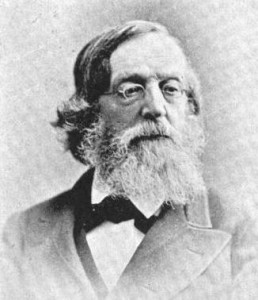Lately I’ve been thinking a lot about fundamentalism in preparation for an upcoming project I’d like to do on Rene Girard’s mimetic theory. As part of the development process, I’ve been doing a series of presentations to help me workshop the material. I’ve never approached a documentary project in this way before. However, I’m finding the opportunity to “test drive” the content with various groups tremendously fruitful.
I’m keying in on the issue of fundamentalism, because I begin my presentation with a “state of the union” on religion. I note how in the mid-20th century, sociologists and other qualified observers predicted that the rise of modernity would lead to the demise of religion. They assumed that as we moved toward a more scientific “evidence-based” way of seeing the world, worldviews that took more of a magical or supernatural approach would simply fade away–or be overrun by a tsunami of evidence that revealed such worldviews to be rooted in illusion rather than fact.
Instead, 60 years later it appears like exactly the opposite has happened. Instead of going away, religion is louder, stronger and more violent than ever. Of course, everyone points to 9/11 as the wake-up call that fundamentalism isn’t going away any time soon. And one has only to think of the Boston Marathon bombing, the brutal attack on the soldier in London, the recent skirmishes in the southern Philippines or any number of other religiously motivated acts of violence that occurred over the past couple of months to realize that religion–particularly fundamentalist religion–is very much a force to be reckoned with in today’s world.
But does religious violence necessarily indicate a rise in religious affiliation? I find Rob Bell’s recent comments about evangelical Christianity especially enlightening in this regard:
I think we are witnessing the death of a particular subculture that doesn’t work. I think there is a very narrow, politically intertwined, culturally ghettoized, Evangelical subculture that was told “we’re gonna change the thing” and they haven’t. And they actually have turned away lots of people. And i think that when you’re in a part of a subculture that is dying, you make a lot more noise because it’s very painful.
So rather than defy predictions of religion’s demise, perhaps these violent outbursts merely confirm it. The last gasp of a dying institution. To invoke a Tolkien image, they are merely the flaming tail of a Balrog seeking to pull us down with it into the abyss.
As if to bolster this hypothesis, in North America at least, we are seeing a stampede for the exits when it comes to people’s willingness to identify with institutional forms of religion, especially Protestant Christianity. A lot was made of the recent Pew study which documented the rise of the “nones,” one-fifth of the American population who claim no religious affiliation. That’s not to say the nones don’t believe in God. Many of them do. Call them “spiritual but not religious.” But, like this guy, they are increasingly skeptical of institutionalized expressions of faith, which seems to portend that America is following the same path toward secularization that many European countries have walked.
So what does this picture tell us? Is religion on the rise or is it on its way out? At the risk of being annoying, I would say, “both.” Particular expressions of religion are certainly waning, and others are waxing. But the need to ground our identity in something that transcends our individual experience has remained constant.
Witness the trailer for the upcoming documentary The Unbelievers, for example. I find it intriguing that Richard Dawkins and Lawrence Krauss have essentially adopted the means of “the enemy” to win people over to their cause. In this trailer, you see them preaching, proselytizing, marshaling celebrity endorsements and working out strategies to communicate their message more effectively to the broader culture. Hanging over it all is an apocalyptic tone, a sense that failure to fulfill their mission could spell disaster. Swap out the names and the ideas being communicated, and this could just as easily be a trailer for the next big release from Campus Crusade for Christ. This isn’t a criticism of Dawkins so much as an observation. How could it be any other way? Dawkins is only doing what every human feels an inherent need to do–ground his identity in a narrative that makes sense of the world, and then validate that narrative by getting as many people as possible to assent to it.
The important question is how we deal with those who disagree with our chosen narrative. This is where the specter of fundamentalism rears its head.
After scouring the web for a good working definition of fundamentalism, I decided to go with “a violent reaction to modernity.” I prefer this definition, because it helps encapsulate the idea that fundamentalism isn’t so much a set of beliefs as a sense of inflexibility in terms of how those beliefs are held. This means everyone–even Richard Dawkins (even me!)–can potentially fit into the fundamentalist category.
However, I think fundamentalist atheism differs from other forms of fundamentalism in one key regard: rather than a reaction against modernity, it seems to be more of a reaction against post-modernity–the idea that there could be more than one plausible explanation for reality, and that perhaps even our perception of reality is itself a social construction, always in need of revision. (Of course, many Christians resist this idea as well.) People like Dawkins talk about moving people toward an evidence-based view of the world. But what qualifies as evidence? That determination can only be made by referencing your worldview. For example, a Christian may accept a personal revelation gained through prayer as evidence of God’s existence. Someone of Dawkins’ ilk will dismiss such “evidence” as nothing more than a psychological projection. Same phenomena, different explanation, because according to each worldview, certain lines of inquiry or explanation are necessarily excluded.
The problem is, a worldview is nothing more than a set of unprovable philosophical assumptions. We tend to believe our worldview is based on evidence, but I think it’s more accurate to say a worldview is a set of non-negotiable moral or intellectual intuitions that we have come to accept as facts. So when someone comes along and questions those assumptions or asks us to consider forms of evidence that our worldview has already excluded, it’s only natural to assume that person is cognitively or emotionally defective. How else could they dispute something so obvious?
So we attempt to educate such people, to win them over to our position. But when these dissenters refuse to surrender to the obvious supremacy of our view, we come to suspect that perhaps these people aren’t merely defective in some way, they may actually be evil. They know we’re right; they just refuse to admit it.
This raises an important question: How can we possibly resolve such disputes, especially when we can’t even agree on what qualifies as evidence? It’s like we’re speaking completely different languages.
Pluralism is one response. Live and let live. All paths are equally valid. There’s no need to decide. However, if all paths are equally valid, then all paths are equally meaningless. And the assumption that all paths are equally valid is itself a philosophical preference rather than a scientific inference. So even according to its own rules, there’s no need to grant it privileged status.
These questions could easily lead to paralysis, but I tend to be rather pragmatic. To me, the only important questions are: Which worldview(s) are most conducive to careful and accurate observation of the universe? Which worldview(s) yield the most accurate predictions? Which worldview(s) require us to accept the fewest unprovable assumptions? Which worldview(s) yield the smallest number of unexplainable anomalies? Which worldview(s) minimize rather than exacerbate conflict? And which worldview(s) are the most receptive to change in light of new information? This doesn’t mean worldviews which fail to pass this test should be eradicated, but it is probably in the best interest of all if they are simply abandoned. (Of course, I say this fully realizing that all I’ve done here is articulate my own philosophical preference…)
However, as I think about it, perhaps this final question is the most important. It also leads to an even better definition of fundamentalism–a worldview that refuses to change in light of new information. By necessity, every worldview requires a certain degree of inflexibility. Otherwise it ceases to function as an explanatory filter. But when preservation and defense of our worldview becomes the end-all, be-all of our existence–when our worldview becomes an end in itself rather than a means to an end–we can be certain we have crossed over into a fundamentalist way of viewing the world.
Whether or not that leads us to become violent, it certainly leads to an impoverished existence. And I don’t care what your philosophical preference is, no amount of evidence can dispute that.











